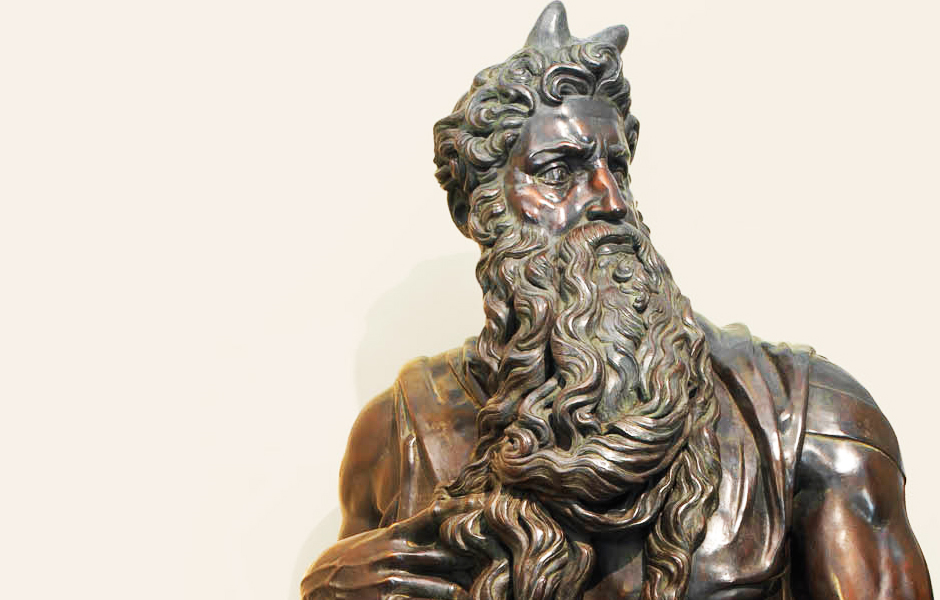As Moses came down from Mount Sinai
with the two tablets of the commandments in his hands,
he did not know that the skin of his face had become radiant
while he conversed with the LORD.
with the two tablets of the commandments in his hands,
he did not know that the skin of his face had become radiant
while he conversed with the LORD.
Michelangelo placed horns on his statue of Moses, indicating the aura of sanctity but it’s more often described in paintings as a circle around the saint's head, a halo. It was something plainly visible to the Jews as he descended Mount Sinai.
But halos are not as rare as the holy pictures suggest. One might not appear over you as you walk down the street, nor will you notice it as you meet strangers. But sit with a holy man or woman for awhile and you’ll notice something different.
For starters they’re not angry at anyone. And they don’t seem to be in any hurry. They experience contentment within their own skin. Holy people know to whom they belong, and they feel that ownership within them and around them. They bring God to every situation even when they’re not talking specifically about God. Their attention to you is God’s attending you.
Married couples do the same for one another. When you're talking with a married man or woman you're always aware of that one's spouse. Their lives are comfortably, freely bound together.
Holy people don’t frighten you because they don’t make judgments. We’ve all heard stories of St John Vianney, (known as the Curé of Ars) and his marvelous ability to hear confessions. Not only did he show compassion and forgiveness to sinners who were guilty of serious sins, on occasion he reminded people of the sins they had long forgotten. But they were not shamed or spooked by his prescience. In fact, they were comforted because he did not judge them as wicked or evil. He understood people with the compassion of God. He looked upon each man and woman as Jesus looks upon us, with the eyes of a friendly, affectionate brother.
And yet there is a seriousness about holy people. They know boundaries and limits. They may be friendly and sympathetic to "prostitutes and sinners" but they do not condone evil thoughts, words, or deeds. Their God is a jealous God. Willing to live within the love of a jealous God, they are equally willing to speak to others of moral issues.
Moses certainly could not abide the idolatry of his people and he let them know in no uncertain terms. A holy person may not have the civil authority Moses had to correct a problem, and she may be helpless to do anything about an evil situation, but she recognizes evil when she sees it. If others are willing to hear, the holy one is willing to speak as the prophet of God.
God has sent us to our nation to be a holy presence. Our first duty is not to condemn the behavior of our neighbors but to seek and do the will of God in all things. The aura of holiness may appear over us and it may be a crown of thorns at times, but it is beautiful to behold.

No comments:
Post a Comment
I love to write. This blog helps me to meditate on the Word of God, and I hope to make some contribution to our contemplations of God's Mighty Works.
Ordinarily, I write these reflections two or three weeks in advance of their publication. I do not intend to comment on current events.
I understand many people prefer gender-neutral references to "God." I don't disagree with them but find that language impersonal, unappealing and tasteless. When I refer to "God" I think of the One whom Jesus called "Abba" and "Father", and I would not attempt to improve on Jesus' language.
You're welcome to add a thought or raise a question.